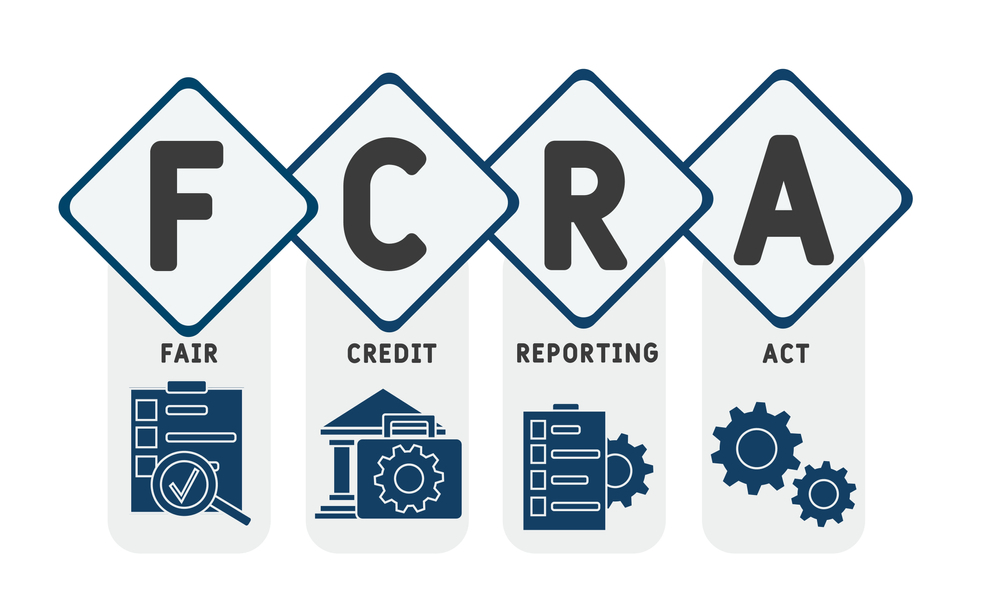What Is the Fair Credit Reporting Act
The Fair Credit Reporting Act (FCRA) is a law that governs how credit information is collected and how individuals may view their credit reports. It was enacted in 1970 in order to ensure the impartiality, accuracy, and privacy of personal information held by credit reporting organizations.
The Fair Credit Reporting Act (FCRA) was formed in 1970 to help consumers understand what actions they may take in response to information in their credit reports.
Consumer information is collected regularly: Other firms, in addition to the three major consumer credit agencies (Experian, TransUnion, and Equifax), may collect and utilize your information. Banks and credit unions, for example, may analyze your credit history to assess whether or not to accept you for a loan.
Following is a more in-depth look at this specific law, your rights under it, and what you may do if you believe your rights were violated.
Table of Contents
How Does The Fair Credit Reporting Act Work?
The Fair Credit Reporting Act or FCRA, is the law governing the collection and reporting of consumer credit information. Its laws govern how credit information about customers is gathered, stored, and shared with others, including consumers themselves.
The Consumer Financial Protection Bureau (CFPB) and the Federal Trade Commission (FTC) are the two federal organizations in charge of regulating and implementing the act’s requirements. State regulations in several states also govern credit reporting. Title 15, Section 1681 of the United States Code contains the complete act.
Equifax, Experian, and TransUnion are the three largest credit reporting agencies, and other, more specialized organizations gather and sell information on individual clients’ financial histories. Consumers’ credit scores are calculated using the information in their reports, which might impact things such as their interest rates when they borrow the money.
Your Rights Under The Fair Credit Reporting Act
The Fair Credit Reporting Act is approximately 100 pages long in all. Many laws and regulations are covered by the text of this federal legislation (not to mention various changes approved by Congress during the previous 50 years). These regulations include credit reporting, identity theft, consumer data privacy, etc.
Although it is unrealistic to expect you to know all of your rights under the Fair Credit Reporting Act, having a basic awareness is beneficial. Here are some of the essential safeguards you can get due to the FCRA.
1. Credit Report Access
The Fair Credit Reporting Act (FCRA) enables access to your consumer reports, including your credit reports from Equifax, TransUnion, and Experian. You may get these reports for free once every 12 months according to an FCRA modification known as FACTA – the Fair and Accurate Credit Transactions Act. In response to the coronavirus outbreak, the three major credit bureaus voluntarily provide clients with free weekly credit report access until April 2021.
By visiting AnnualCreditReport.com, you can easily obtain your three credit reports.
You may be eligible for free credit reports in the following circumstances:
- Because of your credit history, you’ve been denied credit, insurance, or employment, or you’ve been provided less favorable conditions.
- You’re jobless and intend to look for work within the next 60 days.
- You add a fraud alert to your credit reports in the event of identity theft.
- Your credit report contains false information.
- You are a recipient of government aid.
2. Credit Score Access
A consumer credit reporting service that develops or distributes credit scores can also provide you with a copy of your credit score. However, you may have to pay to access your credit score instead of credit reports.
Remember that your credit score isn’t included in your credit report. It’s an add-on product that assesses the information in your credit report and gives a “number grade” depending on your credit risk: the smaller your risk, the higher your score.
3. Dispute Inaccuracies
On a daily basis, consumer reporting companies, particularly the main credit bureaus, deal with a vast volume of data. Each of the credit bureaus has over 220 million credit information files. It should thus come as no surprise if mistakes occur. According to U.S. PIRG, consumer credit reports were the subject of 50% of the CFPB’s Public Consumer Complaint Database complaints in 2019.
The FCRA not only gives you the right to dispute credit information inaccuracies, but it also informs credit bureaus on how to handle them when they get in:
- Suppose a disputed item is not confirmed or rectified within the specified time limit. In that case, the credit bureau is supposed to remove it from your credit report (typically 30 days, but sometimes 45 days).
- If the item you challenged was removed, rectified, or validated as factual, the credit bureau must provide you with an update.
- Consumers are not charged for credit complaints.
When you find incorrect or doubtful information on your credit report, it’s essential to dispute it. Even if the error appears to be trivial, having it removed might help you boost your credit score.
4. Time Limitations
Negative items may appear on your credit reports if you experience bad circumstances or make blunders while managing your credit obligations. Bad credit history might make obtaining a decent credit score difficult, if not impossible.
On the plus side, most poor credit history is removed from your credit report after a certain period. The FCRA limits how long negative items can stay on your credit report.
Final Word
The Fair Credit Reporting Act is a law that requires credit bureaus to follow a set of rules and regulations. The act promotes truth, fairness, and privacy for average Americans regarding the information on a person’s credit report. The Federal Trade Commission is the federal agency in charge of enforcing the legislation.
This law protects the credit information of the consumers, which is collected by the credit reporting agencies such as three major credit bureaus, medical companies, and tenant services.
A lender, insurance, tenant, employer, or anyone else requesting someone’s credit report must have a legally permitted reason for doing so, according to the FCRA. Credit rating agencies must also erase bad credit information after seven years and bankruptcies after 7 to 10 years based on the kind of bankruptcy involved, according to the FCRA.
If any company violates the Fair Credit Reporting Act, a fine of $100 to $1,000 may be imposed for each violation. Actual and aggravated damages and attorney’s fees may be assessed if damages are accrued. If someone acquires information from a consumer reporting agency under false pretenses, they may face criminal charges.
To prevent being taken advantage of by corporations in the credit reporting sector, you should be well informed of your rights as a consumer. And you should be able and allowed to invoke those rights if required to do so.






